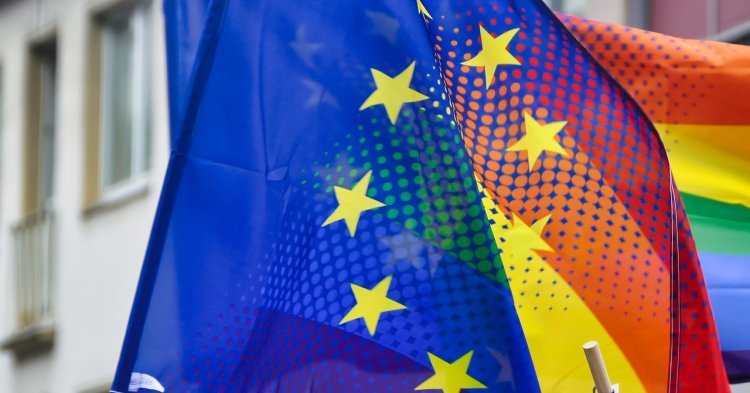Christianity has been the predominant religion of Hungary for the past thousand years. The religion was brought to the country by the founder of the state, King Stephen at the turn of the 10th century. In order to gain more influence through the support of the Church he called upon missionaries to convert the nation to Christianity and resultantly made it compulsory for all citizens to convert. Hungary has had a Christian majority ever since. In spite of this, both Jewish and Islamic religions have continued to play a significant role in the territory of historical Hungary. Ireland, likewise, has been a predominantly Christian country for over one thousand years. It is believed that the religion was brought to the island as early as 431 AD and that by the 7th century the majority of Irish people had converted to Christianity largely due to the mission of St. Patrick. However, despite Christianity playing a large role in both nations’ histories, the attitudes of the Irish and Hungarian governments towards LGBTQ+ rights have gone in opposite directions in recent years as a result of different interpretations of the church teachings.
In Hungary, Fidesz and KDNP (Christian Democrats) came to power in 2010 by means of coalition. Combined, the parties had overall received two-thirds of the votes. After being elected, the party presented the new Fundamental Law of Hungary which expressed in its preamble its commitment to Christianity as the following: “We are proud that our king Saint Stephen built the Hungarian state on solid ground and made our country a part of Christian Europe”. Although in Hungary church and state are separate, the current government aims for closer cooperation between the two, as it helped to build the nation and Hungarian communities across the border. Fidesz hence strengthened the role of religion by using Christianity as a reference to promote national identification that carries religious attributes. [1]
Even if Hungarian politics of the past decade have become more intertwined with Christianity, are the people of Hungary as religious as their government? According to the 2011 data of the Hungarian Central Statistical Office, more than half of the population declare themselves to be Christian, 54.2% to be exact, of which 39% are Catholic and 14.1% Protestant meaning that Hungary is certainly not an atheist society. However, the majority refuses to follow churches and to participate in institutionalized religious activities. Comparatively, the proportion of Christians in the Republic of Ireland is much higher than that of Hungary. The last census, which was compiled in 2016, stated that an overwhelming majority of Christians were Catholic, amounting to 78.3% of the population. According to The Irish Times in 2018, which provided data on church attendance in Western Europe, 34% of Irish Catholics attended mass on a weekly basis, scoring as the third highest religiosity rate in Western Europe just behind Italy and Portugal. Based on these figures it would appear that Ireland is a stronghold for Catholicism, however this could not be further from the truth. In 2006, 86,8% of the population was Catholic, meaning that in the span of ten years the catholic community dropped by 10 percent, meanwhile atheism grew by over 4% between 2011 and 2016. Therefore Christianity has been steadily losing its power in the country.
Subsequently to Hungary’s reconnection to its Christian heritage, in May 2020, the National Assembly of Hungary adopted a new law that ended the legal recognition for gender changes in official documents. This new law makes everyday life and administrative actions more difficult for trans persons in Hungary. It can also lead to increased discrimination against them. Hungarian Minister for Justice, Judit Varga, submitted the ninth amendment of the constitution later that year at the end of November. The amendment stated that Hungarian children must receive an upbringing based on the values of Hungary’s Christian culture. The amendment also added that “the mother is a woman, the father is a man”. It also states that Hungary “protects children’s right to the gender identity they were born with”. The Constitution at that time had already defined the institution of marriage as “between a man and a woman“as well as”the basis of the family and national survival". On 15 December 2020, the National Assembly of Hungary adopted the amendment with 134 votes for it, 45 votes against it and 5 abstentions.
Same-sex couples are not legally allowed to marry in Hungary, and now, as a result of the new amendment, single people can adopt children only with the special permission of the Minister without portfolio for Family Affairs, Katalin Novák. This is why critics have viewed the new Constitution as an attack on members of the LGBTQ+ community, claiming the new law makes it almost impossible for same-sex couples to adopt children. Notwithstanding the changes in Hungarian law of recent years, the majority of Hungarians (55%) do not agree with the statement that LGBTQ+ rights represent an immoral ideology, and in spite of the recent legislative changes and of the current government’s rhetoric, nearly half of Hungarians think that the rights of the LGBTQ+ minority should be guaranteed.
In comparison to this, in Ireland, as a result of the 2017 Adoption Act, couples have no requirement to be married to be able to adopt a child. So long as a couple meets the necessary criteria for child adoption, they may do so. Instead, the main requirement is now that a couple has resided together for at least three years. Both same sex couples as well as heterosexual couples are assessed on the same criteria and the sexual orientation of the potential new parents are not taken into consideration.
Prominent Irish political figures, much like the rest of Irish society, are also heading in a completely different direction to that of the Hungarian government. One of the best examples being Mary McAleese, president of Ireland from 1997 - 2011. Despite being a devout Catholic McAleese has called out the teachings of the Catholic church for being “intrinsically evil” and that it “empowers the homophobic bully.” McAleese believes that homosexuality is a “god-given nature” and as a result has argued that being LGBTQ+ is natural and therefore cannot be a disorder. Another highly influential figure in Irish politics in recent years has been Leo Varadkar, leader of Fine Gael, a Christian democratic party. Varadkar is openly gay and was elected as taoiseach (prime minister) of Ireland in 2017 by the Irish parliament. Considering that more than three quarters of Irish citizens identify as Catholic this shows how tolerant Irish Catholics have become. Varadkar, like McAleese, also confronted the Catholic church on its teachingsand has stated that they have “had too much of a dominant place in our society.”
What it all essentially comes down to is how the teachings of Christianity are interpreted. Despite the fact that there is no actual mention of same sex relationships by Jesus in the scriptures Christians have used other means to denounce homosexuality. According to the Book of Genesis, God made male and female in order to be able to procreate. Therefore a man and a woman are allowed to have a sexual union whereas a same sex union would hence lack meaning and therefore be seen as sinful. The fact that no clear guideline concerning same-sex relationships with regard to its morality appears in the Bible explains why the Hungarian political figures view the matter in a completely different light to that of Irish ones. Interpretation of the Bible and scriptures is an entirely subjective matter. For this very reason, the matter of whether a same-sex couple should be eligible for adoption has been interpreted differently in Ireland and Hungary. Consequently Ireland draws a path where the members of the LGBTQ+ community are not excluded from the Christian society and serves as the example that conservative Catholic values and progressive and inclusive laws and societies can coexist and support each other.


1. On 8 January 2023 at 03:47, by Igor Sanchez Replying to: A matter of interpretation: Christian values and LGBTQ+ Rights in Hungary and Ireland
Replying to: A matter of interpretation: Christian values and LGBTQ+ Rights in Hungary and Ireland
I am thankful to God that Hungary is standing strong to defend the Christian values of the Family.
Follow the comments: |
|
